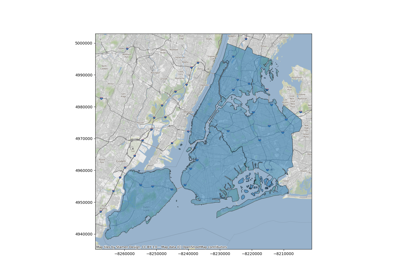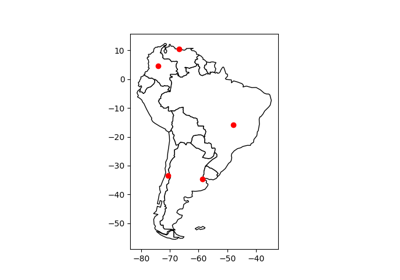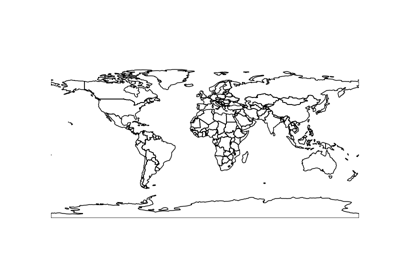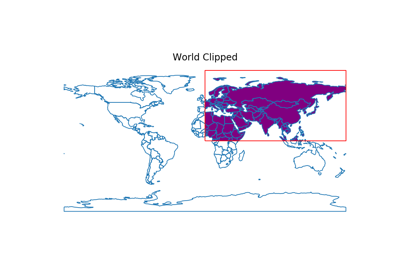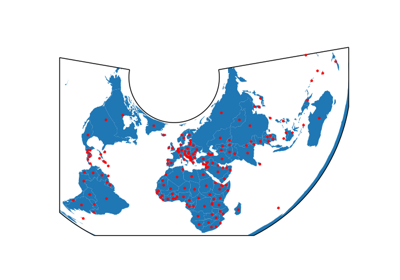geopandas.read_file¶
-
geopandas.read_file(filename, bbox=None, mask=None, rows=None, \*\*kwargs)¶ Returns a GeoDataFrame from a file or URL.
New in version 0.7.0: mask, rows
- Parameters
- filename: str
Either the absolute or relative path to the file or URL to be opened.
- bbox: tuple | GeoDataFrame or GeoSeries | shapely Geometry, default None
Filter features by given bounding box, GeoSeries, GeoDataFrame or a shapely geometry. CRS mis-matches are resolved if given a GeoSeries or GeoDataFrame. Cannot be used with mask.
- mask: dict | GeoDataFrame or GeoSeries | shapely Geometry, default None
Filter for features that intersect with the given dict-like geojson geometry, GeoSeries, GeoDataFrame or shapely geometry. CRS mis-matches are resolved if given a GeoSeries or GeoDataFrame. Cannot be used with bbox.
- rows: int or slice, default None
Load in specific rows by passing an integer (first n rows) or a slice() object.
- **kwargs:
Keyword args to be passed to the open or BytesCollection method in the fiona library when opening the file. For more information on possible keywords, type:
import fiona; help(fiona.open)
- Returns
Notes
The format drivers will attempt to detect the encoding of your data, but may fail. In this case, the proper encoding can be specified explicitly by using the encoding keyword parameter, e.g.
encoding='utf-8'.Examples
>>> df = geopandas.read_file("nybb.shp")
